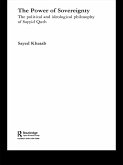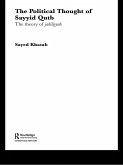Routledge Handbook on the Philosophy of Meditation (eBook, PDF)
Redaktion: Repetti, Rick
47,95 €
47,95 €
inkl. MwSt.
Sofort per Download lieferbar

24 °P sammeln
47,95 €
Als Download kaufen

47,95 €
inkl. MwSt.
Sofort per Download lieferbar

24 °P sammeln
Jetzt verschenken
Alle Infos zum eBook verschenken
47,95 €
inkl. MwSt.
Sofort per Download lieferbar
Alle Infos zum eBook verschenken

24 °P sammeln
Routledge Handbook on the Philosophy of Meditation (eBook, PDF)
Redaktion: Repetti, Rick
- Format: PDF
- Merkliste
- Auf die Merkliste
- Bewerten Bewerten
- Teilen
- Produkt teilen
- Produkterinnerung
- Produkterinnerung

Bitte loggen Sie sich zunächst in Ihr Kundenkonto ein oder registrieren Sie sich bei
bücher.de, um das eBook-Abo tolino select nutzen zu können.
Hier können Sie sich einloggen
Hier können Sie sich einloggen
Sie sind bereits eingeloggt. Klicken Sie auf 2. tolino select Abo, um fortzufahren.

Bitte loggen Sie sich zunächst in Ihr Kundenkonto ein oder registrieren Sie sich bei bücher.de, um das eBook-Abo tolino select nutzen zu können.
This Handbook provides a comprehensive overview & analysis of the state of the field of the philosophy of meditation. It will serve as textbook reading in courses in philosophy of mind, consciousness, selfhood/personhood, metaphysics, or phenomenology.
- Geräte: PC
- mit Kopierschutz
- eBook Hilfe
Andere Kunden interessierten sich auch für
![Routledge Handbook on the Philosophy of Meditation (eBook, ePUB) Routledge Handbook on the Philosophy of Meditation (eBook, ePUB)]() Routledge Handbook on the Philosophy of Meditation (eBook, ePUB)47,95 €
Routledge Handbook on the Philosophy of Meditation (eBook, ePUB)47,95 €![The Socio-political Ideas of BR Ambedkar (eBook, PDF) The Socio-political Ideas of BR Ambedkar (eBook, PDF)]() Bidyut ChakrabartyThe Socio-political Ideas of BR Ambedkar (eBook, PDF)43,95 €
Bidyut ChakrabartyThe Socio-political Ideas of BR Ambedkar (eBook, PDF)43,95 €![The Power of Sovereignty (eBook, PDF) The Power of Sovereignty (eBook, PDF)]() Sayed KhatabThe Power of Sovereignty (eBook, PDF)57,95 €
Sayed KhatabThe Power of Sovereignty (eBook, PDF)57,95 €![The Vivekacudamani of Sankaracarya Bhagavatpada (eBook, PDF) The Vivekacudamani of Sankaracarya Bhagavatpada (eBook, PDF)]() John GrimesThe Vivekacudamani of Sankaracarya Bhagavatpada (eBook, PDF)54,95 €
John GrimesThe Vivekacudamani of Sankaracarya Bhagavatpada (eBook, PDF)54,95 €![Exploring Agency in the Mahabharata (eBook, PDF) Exploring Agency in the Mahabharata (eBook, PDF)]() Exploring Agency in the Mahabharata (eBook, PDF)43,95 €
Exploring Agency in the Mahabharata (eBook, PDF)43,95 €![The Political Thought of Sayyid Qutb (eBook, PDF) The Political Thought of Sayyid Qutb (eBook, PDF)]() Sayed KhatabThe Political Thought of Sayyid Qutb (eBook, PDF)57,95 €
Sayed KhatabThe Political Thought of Sayyid Qutb (eBook, PDF)57,95 €![Religious Pluralism in Christian and Islamic Philosophy (eBook, PDF) Religious Pluralism in Christian and Islamic Philosophy (eBook, PDF)]() Adnan AslanReligious Pluralism in Christian and Islamic Philosophy (eBook, PDF)47,95 €
Adnan AslanReligious Pluralism in Christian and Islamic Philosophy (eBook, PDF)47,95 €-
-
-
This Handbook provides a comprehensive overview & analysis of the state of the field of the philosophy of meditation. It will serve as textbook reading in courses in philosophy of mind, consciousness, selfhood/personhood, metaphysics, or phenomenology.
Dieser Download kann aus rechtlichen Gründen nur mit Rechnungsadresse in A, B, BG, CY, CZ, D, DK, EW, E, FIN, F, GR, HR, H, IRL, I, LT, L, LR, M, NL, PL, P, R, S, SLO, SK ausgeliefert werden.
Produktdetails
- Produktdetails
- Verlag: Taylor & Francis eBooks
- Seitenzahl: 442
- Erscheinungstermin: 16. Mai 2022
- Englisch
- ISBN-13: 9781000575699
- Artikelnr.: 63602485
- Verlag: Taylor & Francis eBooks
- Seitenzahl: 442
- Erscheinungstermin: 16. Mai 2022
- Englisch
- ISBN-13: 9781000575699
- Artikelnr.: 63602485
- Herstellerkennzeichnung Die Herstellerinformationen sind derzeit nicht verfügbar.
Rick Repetti is Professor of Philosophy at the City University of New York (CUNY), USA, and author of four books, including Buddhism, Meditation, and Free Will (Routledge 2018), and dozens of articles and chapters on meditation and free will. He is an APPA-certified philosophical counselor, podcaster, and 4th-Dan Shotokan blackbelt, and has taught meditation and yoga since the mid-1970s.
Introduction: Is meditation philosophy? PART I: Meditation and philosophy 1 Skeptical doubts about meditation as philosophy 2 The philosophy of meditation: The spoken Tao 3 Meditation and the paradox of self-consciousness 4 The relation between meditation and analytic philosophy 5 Engaging metacognitive practices: On the uses (and possible abuse) of meditation in philosophy 6 Differences and interaction between meditative cultivation and philosophical thought/insight in early and Therav
da Buddhism 7 The necessity of meditation in Upani
adic tur
ya and Yog
c
ra amala vijñana PART II: Meditation and epistemology 8 Meditation, nonconceptuality, and the reflexive structure of consciousness 9 The experience of presence: Meditation and the nature of consciousness 10 Meditation as cultivating knowledge-how 11 How meditation changes the brain: A neurophilosophical and pragmatic account 12 How a philosophy of meditation can explore the deep connections between mindfulness and contemplative wisdom 13 Psychedelics and meditation: A neurophilosophical perspective PART III: Meditation and metaphysics 14 Philosophy without a philosopher: An
tman as a special case of dependent arising 15 Meditative experience and the plasticity of self-experience 16 The self: What does mindfulness meditation reveal about it? 17 Control, anxiety, and the progressive detachment from the self PART IV: Meditation and values 18 Is there a global norm in favor of global attentiveness? 19 Meditation in the context of a naturalized eudaimonic Buddhism PART V: Meditation and phenomenology 20 The phenomenology of meditation: An Advaita approach 21 What is meditation good for?: Reflections on the use of meditation in the study of consciousness 22 Bare attention, dereification, and meta-awareness in mindfulness: A phenomenological critique 23 Consciousness, content, and cognitive attenuation: A neurophenomenological perspective PART VI: Meditation in Greco-Roman and Judeo-Christian traditions 24 Prosochê as Stoic mindfulness 25 The philosophical presuppositions of Christian meditation: Theo-philosophical anthropology and its corresponding participatory ontology 26 The end of man: Philosophical consummation in Jewish meditative tradition
da Buddhism 7 The necessity of meditation in Upani
adic tur
ya and Yog
c
ra amala vijñana PART II: Meditation and epistemology 8 Meditation, nonconceptuality, and the reflexive structure of consciousness 9 The experience of presence: Meditation and the nature of consciousness 10 Meditation as cultivating knowledge-how 11 How meditation changes the brain: A neurophilosophical and pragmatic account 12 How a philosophy of meditation can explore the deep connections between mindfulness and contemplative wisdom 13 Psychedelics and meditation: A neurophilosophical perspective PART III: Meditation and metaphysics 14 Philosophy without a philosopher: An
tman as a special case of dependent arising 15 Meditative experience and the plasticity of self-experience 16 The self: What does mindfulness meditation reveal about it? 17 Control, anxiety, and the progressive detachment from the self PART IV: Meditation and values 18 Is there a global norm in favor of global attentiveness? 19 Meditation in the context of a naturalized eudaimonic Buddhism PART V: Meditation and phenomenology 20 The phenomenology of meditation: An Advaita approach 21 What is meditation good for?: Reflections on the use of meditation in the study of consciousness 22 Bare attention, dereification, and meta-awareness in mindfulness: A phenomenological critique 23 Consciousness, content, and cognitive attenuation: A neurophenomenological perspective PART VI: Meditation in Greco-Roman and Judeo-Christian traditions 24 Prosochê as Stoic mindfulness 25 The philosophical presuppositions of Christian meditation: Theo-philosophical anthropology and its corresponding participatory ontology 26 The end of man: Philosophical consummation in Jewish meditative tradition
Introduction: Is meditation philosophy? PART I: Meditation and philosophy 1 Skeptical doubts about meditation as philosophy 2 The philosophy of meditation: The spoken Tao 3 Meditation and the paradox of self-consciousness 4 The relation between meditation and analytic philosophy 5 Engaging metacognitive practices: On the uses (and possible abuse) of meditation in philosophy 6 Differences and interaction between meditative cultivation and philosophical thought/insight in early and Therav
da Buddhism 7 The necessity of meditation in Upani
adic tur
ya and Yog
c
ra amala vijñana PART II: Meditation and epistemology 8 Meditation, nonconceptuality, and the reflexive structure of consciousness 9 The experience of presence: Meditation and the nature of consciousness 10 Meditation as cultivating knowledge-how 11 How meditation changes the brain: A neurophilosophical and pragmatic account 12 How a philosophy of meditation can explore the deep connections between mindfulness and contemplative wisdom 13 Psychedelics and meditation: A neurophilosophical perspective PART III: Meditation and metaphysics 14 Philosophy without a philosopher: An
tman as a special case of dependent arising 15 Meditative experience and the plasticity of self-experience 16 The self: What does mindfulness meditation reveal about it? 17 Control, anxiety, and the progressive detachment from the self PART IV: Meditation and values 18 Is there a global norm in favor of global attentiveness? 19 Meditation in the context of a naturalized eudaimonic Buddhism PART V: Meditation and phenomenology 20 The phenomenology of meditation: An Advaita approach 21 What is meditation good for?: Reflections on the use of meditation in the study of consciousness 22 Bare attention, dereification, and meta-awareness in mindfulness: A phenomenological critique 23 Consciousness, content, and cognitive attenuation: A neurophenomenological perspective PART VI: Meditation in Greco-Roman and Judeo-Christian traditions 24 Prosochê as Stoic mindfulness 25 The philosophical presuppositions of Christian meditation: Theo-philosophical anthropology and its corresponding participatory ontology 26 The end of man: Philosophical consummation in Jewish meditative tradition
da Buddhism 7 The necessity of meditation in Upani
adic tur
ya and Yog
c
ra amala vijñana PART II: Meditation and epistemology 8 Meditation, nonconceptuality, and the reflexive structure of consciousness 9 The experience of presence: Meditation and the nature of consciousness 10 Meditation as cultivating knowledge-how 11 How meditation changes the brain: A neurophilosophical and pragmatic account 12 How a philosophy of meditation can explore the deep connections between mindfulness and contemplative wisdom 13 Psychedelics and meditation: A neurophilosophical perspective PART III: Meditation and metaphysics 14 Philosophy without a philosopher: An
tman as a special case of dependent arising 15 Meditative experience and the plasticity of self-experience 16 The self: What does mindfulness meditation reveal about it? 17 Control, anxiety, and the progressive detachment from the self PART IV: Meditation and values 18 Is there a global norm in favor of global attentiveness? 19 Meditation in the context of a naturalized eudaimonic Buddhism PART V: Meditation and phenomenology 20 The phenomenology of meditation: An Advaita approach 21 What is meditation good for?: Reflections on the use of meditation in the study of consciousness 22 Bare attention, dereification, and meta-awareness in mindfulness: A phenomenological critique 23 Consciousness, content, and cognitive attenuation: A neurophenomenological perspective PART VI: Meditation in Greco-Roman and Judeo-Christian traditions 24 Prosochê as Stoic mindfulness 25 The philosophical presuppositions of Christian meditation: Theo-philosophical anthropology and its corresponding participatory ontology 26 The end of man: Philosophical consummation in Jewish meditative tradition







